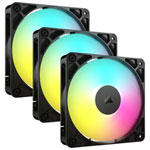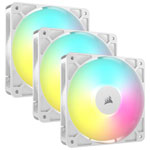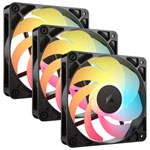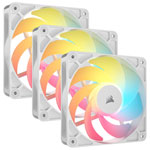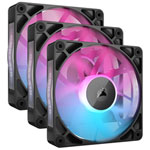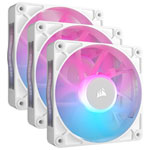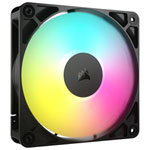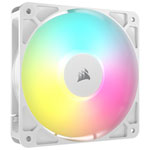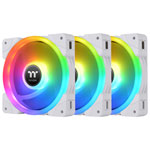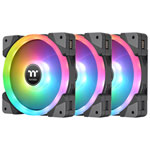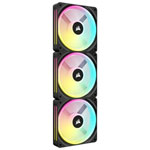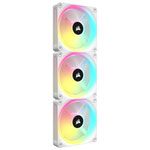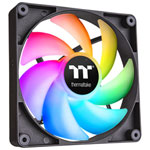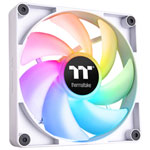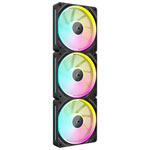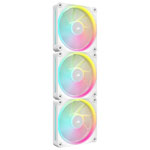PC Fans
1,261 results
Corsair iCUE Link LX120 RGB 120mm PWN Triple Fans Starter Kit - Black
$154.99SAVE $25Plus $0.45 in EHF
FAQ About Computer Fans and Cooling
When it comes to the guts of your computer, like the CPU, motherboard, and power supply, heat is the enemy. The hotter your computer components get, the slower they run, which makes a good cooling system an essential part of any computer. If you're building your own system you'll need to include a cooling system that'll keep heat levels low. Read on for answers to some essential questions about computer fans and cooling systems.
What is a computer fan cooling system?
Pretty much what it sounds like: a system that uses fans to cool down the inside of your computer. Depending on how your computer is configured, it might need enough fans to cool off several different components (e.g. CPU fan, power supply fan, etc.).
What should I look for when choosing a computer fan?
Here are the main factors to keep in mind when you're shopping:
Dimensions/size
A fan system won't do much good if it can't fit inside your computer. Be sure to choose a size and shape that's compatible with your computer's inner dimensions.
Rotational speed
The faster the fan, the greater the airflow it can generate. However, smaller and faster fans generally produce more noise than larger and slower ones, so keep that in mind if you're easily bothered by loud fan noise.
Air pressure and flow
"Air pressure" refers to the cooling power per unit area. Generally speaking, more air pressure indicates more air flow, which leads to greater cooling performance. Check your computer's components to ensure you choose a fan that can provide the cooling performance you need.
Bearing types
The type of bearing built into a PC fan can affect its performance and noise levels. Sleeve bearings are less reliable and can get noisy as they get older, while rifle bearings are similar but generally quieter. Ball bearings are pricier, durable, and quiet, while fluid bearings are nearly silent, extremely durable, and will stretch your budget even more than ball bearings.
Connectors
Make sure the fans you choose have the proper connectors for whatever type of component they're connecting to.
What are the different types of cooling systems?
Fans are the most common type of cooling system you'll find in PCs. Some computers include water cooling systems, which use good ol' H2O to channel excess heat away from the PC components. Older computers used passive cooling systems, but modern systems generate so much heat that active cooling (fans or water) systems are now a necessity.
